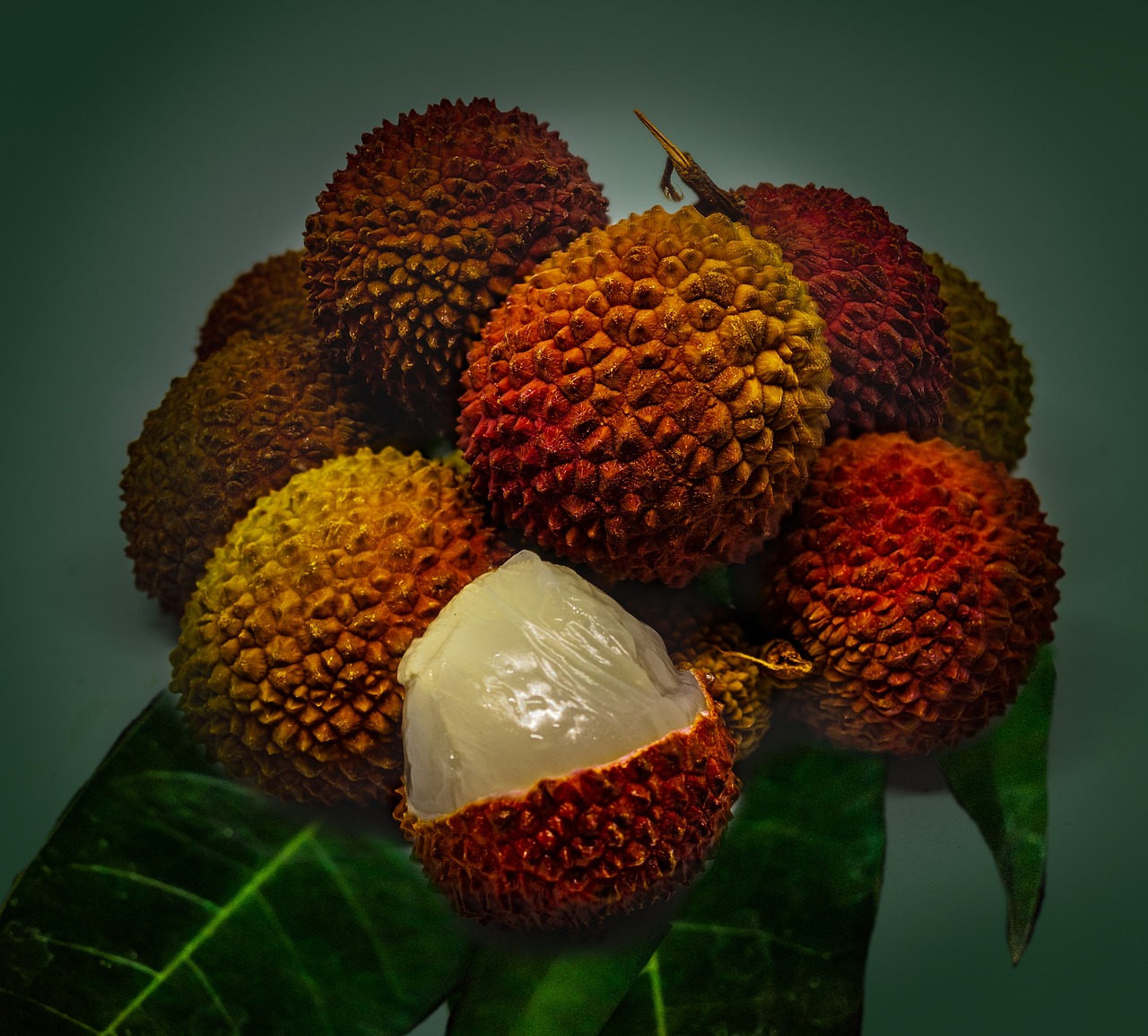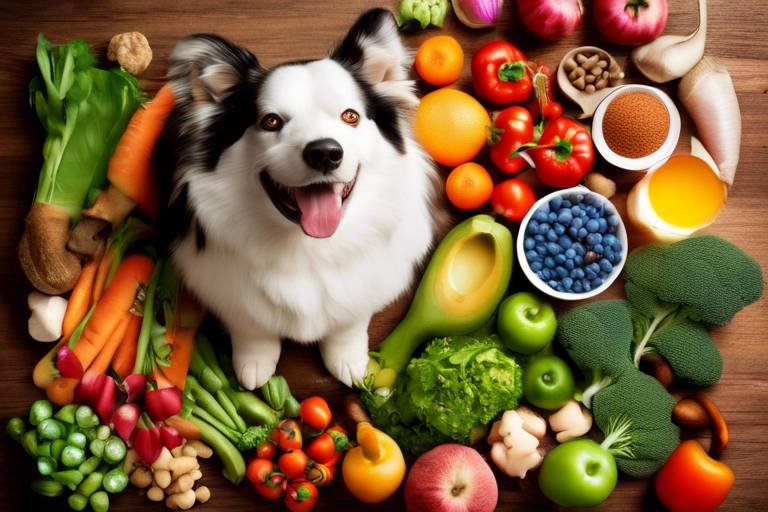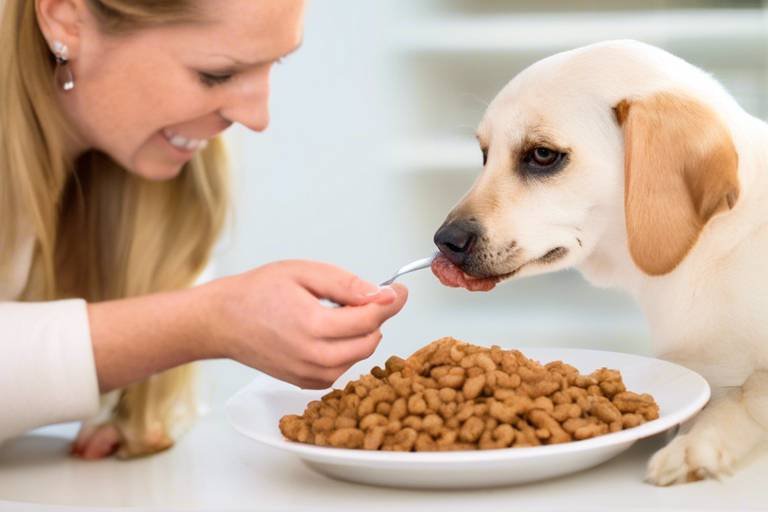The Role of Phytochemicals in Pet Nutrition
In the world of pet nutrition, one term that is gaining traction is phytochemicals. You might be wondering, what exactly are they, and why should they matter to you as a pet owner? Well, phytochemicals are naturally occurring compounds found in plants, and they play a significant role in enhancing the health and well-being of our furry friends. Imagine these compounds as the superheroes of the plant kingdom, providing a range of benefits that can transform a standard pet diet into a powerhouse of nutrition.
Understanding the value of phytochemicals in pet diets is crucial for making informed choices. Just like we humans are encouraged to eat a rainbow of fruits and vegetables for their health benefits, our pets can also thrive on a diet rich in these plant-based wonders. From boosting the immune system to fighting off chronic diseases, the inclusion of phytochemicals can lead to a happier, healthier life for your pets. So, let’s dive deeper into what these compounds are, their sources, and how they can make a remarkable difference in your pet’s diet.
Phytochemicals are bioactive compounds produced by plants that contribute to their color, flavor, and resistance to diseases. These compounds are not essential nutrients like vitamins and minerals, but they offer a plethora of health benefits that can significantly enhance your pet's diet. Think of them as the secret ingredients that can elevate your pet's food from ordinary to extraordinary. They can be found in a variety of plant-based foods, including fruits, vegetables, grains, and legumes.
The health benefits of phytochemicals for pets are numerous and varied. They can help combat oxidative stress, reduce inflammation, and support overall immune function. By leveraging these benefits, pet owners can make dietary choices that promote long-term health and vitality for their companions. Here’s a closer look at some of the remarkable ways phytochemicals can contribute to your pet’s health.
One of the standout features of phytochemicals is their antioxidant properties. Antioxidants are crucial for fighting oxidative stress, which can lead to chronic diseases in pets. Just like a shield protecting a knight, antioxidants defend your pet’s cells from damage caused by free radicals. Some of the most potent antioxidants found in phytochemicals include flavonoids, carotenoids, and polyphenols, which are abundant in various fruits and vegetables.
To ensure your pet reaps the benefits of these antioxidants, consider incorporating the following foods into their diet:
- Blueberries: Packed with vitamins and antioxidants, they are a tasty treat for dogs and cats alike.
- Spinach: This leafy green is not only nutritious but also rich in antioxidants that can boost your pet's health.
- Carrots: Crunchy and sweet, carrots are a great source of beta-carotene, which helps maintain healthy vision.
As our pets age, their bodies become more susceptible to oxidative stress. This is where phytochemicals shine! By incorporating them into your senior pet's diet, you can help slow down the aging process and improve their quality of life. Think of it as giving your pet a little extra armor against the challenges that come with age.
Another essential benefit of phytochemicals is their anti-inflammatory effects. Certain phytochemicals can help manage chronic conditions in pets, alleviating symptoms and improving mobility. For instance, compounds like curcumin found in turmeric can reduce inflammation and provide relief for pets suffering from arthritis. Imagine your pet moving around with ease, thanks to the power of nature’s anti-inflammatories!
Identifying natural sources of phytochemicals in pet food is vital for crafting a balanced diet. Many pet owners may not realize that numerous ingredients are rich in these beneficial compounds. Incorporating these ingredients into your pet’s meals can lead to a more nutritious and healthful diet.
Plant-based ingredients like legumes, grains, and vegetables are excellent sources of phytochemicals. They not only provide essential nutrients but also contain various phytochemicals that can enhance your pet's health. Understanding the roles of these ingredients can empower pet owners to make better dietary choices.
Many commercial pet foods are now beginning to incorporate phytochemical-rich ingredients. Brands are recognizing the importance of these compounds and are formulating their products accordingly. By reviewing the ingredient lists of popular brands, pet owners can make informed selections that align with their pets’ nutritional needs.
Q: What are some easy ways to incorporate phytochemicals into my pet's diet?
A: You can add fruits and vegetables like blueberries, carrots, and spinach to your pet's meals. Always ensure to introduce new foods gradually and consult with your veterinarian if you're unsure.
Q: Are all phytochemicals safe for pets?
A: While many phytochemicals are beneficial, some plants can be toxic to pets. Always research specific foods and consult with a vet before introducing new items into your pet's diet.
Q: How can I tell if my pet food contains phytochemicals?
A: Check the ingredient list for plant-based ingredients, especially fruits and vegetables, which are often rich in phytochemicals. Look for brands that emphasize natural ingredients.

What are Phytochemicals?
Phytochemicals are naturally occurring compounds found in plants, playing a crucial role in their color, flavor, and disease resistance. These fascinating compounds are not just the plants' way of attracting pollinators or deterring pests; they also offer a myriad of health benefits to our beloved pets. Think of phytochemicals as nature's little superheroes, working tirelessly to enhance the nutritional value of the foods we feed our furry friends.
When we talk about phytochemicals, we're diving into a vast world of plant compounds, each with unique properties and benefits. They can be categorized into several groups, including:
- Flavonoids: Known for their antioxidant properties, flavonoids help combat oxidative stress.
- Carotenoids: These pigments contribute to the vibrant colors of fruits and vegetables and support immune function.
- Glucosinolates: Found in cruciferous vegetables, they may have cancer-preventing properties.
What’s particularly interesting about phytochemicals is that they work synergistically with vitamins and minerals, enhancing their effectiveness. For example, the antioxidants in blueberries can boost the absorption of vitamin C, creating a powerful defense against cellular damage. This synergy is especially important for pets, as their bodies require a balanced diet to thrive.
Moreover, phytochemicals are known to support overall health in pets by promoting better digestion, improving skin health, and even enhancing cognitive function. By incorporating a variety of phytochemical-rich foods into your pet's diet, you can help them lead a healthier, happier life. Just like how a colorful garden is more vibrant and resilient, a pet's diet rich in diverse phytochemicals can lead to improved vitality and longevity.
In summary, understanding what phytochemicals are and their role in pet nutrition is essential for pet owners looking to make informed dietary choices. By embracing these plant-based compounds, we can unlock a treasure trove of health benefits for our furry companions, ensuring they live their best lives.

Health Benefits of Phytochemicals for Pets
Phytochemicals are not just a fancy term thrown around in the world of nutrition; they are the superheroes of the plant kingdom, offering a treasure trove of health benefits for our beloved pets. These compounds, found in various fruits, vegetables, and grains, can significantly enhance the quality of life for dogs, cats, and other furry companions. Imagine giving your pet a natural boost that not only supports their immune system but also helps combat chronic diseases. Sounds amazing, right? Well, that's exactly what phytochemicals can do!
One of the standout benefits of phytochemicals is their antioxidant properties. Antioxidants are like tiny warriors that fight against oxidative stress, a condition that can lead to chronic illnesses in pets. Just like humans, pets are exposed to environmental toxins, poor diets, and even stress, all of which can produce harmful free radicals in their bodies. By incorporating foods rich in phytochemicals, pet owners can help their furry friends fend off these nasty invaders. For instance, the antioxidants found in blueberries and spinach can be particularly beneficial. Not only do they taste great, but they also help reduce the risk of serious health issues, such as heart disease and cancer.
But that's not all! Phytochemicals also possess anti-inflammatory effects that can be a game changer for pets suffering from chronic conditions. Just think about it: if your pet is dealing with arthritis or other inflammatory diseases, adding anti-inflammatory phytochemicals to their diet can help alleviate symptoms and improve their mobility. For example, compounds found in turmeric and ginger are known for their powerful anti-inflammatory properties. These natural ingredients can work wonders, reducing pain and swelling, and allowing pets to enjoy their daily activities without discomfort.
Moreover, the benefits of phytochemicals extend to supporting a robust immune system. With a strong immune system, pets are better equipped to fight off infections and illnesses. Phytochemicals like flavonoids, which are abundant in foods like apples and citrus fruits, can enhance immune function and provide a protective effect against various diseases. By ensuring that your pet's diet is rich in these compounds, you can help them stay healthier for longer.
As we dive deeper into the world of pet nutrition, it’s evident that phytochemicals play a crucial role in promoting overall wellness. They not only enhance the nutritional profile of pet food but also contribute to long-term health benefits. So, when choosing your pet's diet, consider the incorporation of phytochemical-rich foods. Your furry friend will thank you for it!
- What are phytochemicals? Phytochemicals are natural compounds found in plants that provide various health benefits, including antioxidant and anti-inflammatory effects.
- How do phytochemicals benefit my pet? They help combat oxidative stress, reduce inflammation, and support the immune system, contributing to overall health and wellness.
- What are some good sources of phytochemicals for pets? Fruits and vegetables such as blueberries, spinach, carrots, turmeric, and ginger are excellent sources of phytochemicals.
- Can commercial pet foods contain phytochemicals? Yes, many commercial pet foods now include phytochemical-rich ingredients, making it easier for pet owners to provide their pets with these health benefits.
Antioxidant Properties
When we talk about antioxidants, we're diving into a world of health benefits that can truly transform your pet's life. Just like humans, pets are exposed to various environmental stressors that can lead to oxidative stress—a condition where free radicals overwhelm the body's ability to neutralize them. This imbalance can result in chronic diseases, accelerated aging, and a general decline in health. However, the good news is that phytochemicals, particularly those rich in antioxidant properties, can help combat this oxidative stress effectively.
Antioxidants work like tiny superheroes in your pet's body, fighting off harmful free radicals that can cause cellular damage. Some of the most powerful antioxidants found in phytochemicals include vitamin C, vitamin E, and beta-carotene. These compounds can be sourced from a variety of fruits and vegetables, which can easily be integrated into your pet's diet. For example, blueberries are not just a tasty treat; they're packed with antioxidants that can help protect your pet's cells from damage. Similarly, leafy greens like spinach and root vegetables such as carrots also offer a wealth of these beneficial compounds.
It's fascinating to note that the specific antioxidants beneficial for your pet can vary based on their species. For instance, while dogs may thrive on a diet rich in blueberries and sweet potatoes, cats often benefit from taurine-rich foods that also contain antioxidants. Understanding these nuances can empower pet owners to make informed dietary choices that cater to their furry friends' unique needs.
| Antioxidant | Source | Benefits |
|---|---|---|
| Vitamin C | Citrus fruits, bell peppers | Supports immune function, reduces inflammation |
| Vitamin E | Spinach, nuts | Protects cell membranes, enhances skin health |
| Beta-Carotene | Carrots, sweet potatoes | Promotes eye health, boosts immune response |
As pets age, the need for antioxidants becomes even more critical. Senior pets often experience increased oxidative stress, which can lead to a host of health issues. By incorporating phytochemicals into their diets, pet owners can help slow down the aging process and improve their pets' quality of life. Think of it as providing your pet with a protective shield that not only helps them feel more energetic but also enhances their overall well-being.
In summary, the antioxidant properties of phytochemicals play a vital role in maintaining your pet's health. By choosing foods rich in these compounds, you are not only enriching their diet but also investing in their long-term health and vitality. So next time you’re at the pet store or the grocery aisle, remember to think about those colorful fruits and veggies that can make a world of difference for your furry companion!
- What are phytochemicals? Phytochemicals are natural compounds found in plants that contribute to their color, flavor, and disease resistance, and they provide health benefits to pets.
- How do antioxidants benefit my pet? Antioxidants combat oxidative stress, reducing the risk of chronic diseases and promoting overall health.
- Can I feed my pet fruits and vegetables? Yes, many fruits and vegetables are safe and beneficial for pets, but always check which ones are appropriate for your specific animal.
- What are some common sources of antioxidants for pets? Common sources include blueberries, spinach, carrots, and sweet potatoes.
Common Antioxidant Sources
When it comes to enhancing the health of our furry friends, incorporating antioxidant-rich foods into their diets is a game changer. Antioxidants play a vital role in fighting free radicals, which are unstable molecules that can cause oxidative stress and lead to various health issues. So, what are some of the best sources of these powerful compounds? Let's dive into the vibrant world of fruits and vegetables that can make a significant difference in your pet's nutrition.
Fruits like blueberries are not just delicious; they are packed with antioxidants such as anthocyanins, which give them their beautiful blue color. These tiny berries can help support cognitive function and reduce the risk of heart disease in pets. Similarly, spinach is a leafy green powerhouse, loaded with vitamins A, C, and E, all of which contribute to its antioxidant properties. By adding a handful of spinach to your pet's meal, you're not just adding flavor but also a wealth of nutrients that can boost their overall well-being.
Another fantastic source of antioxidants is carrots. These crunchy veggies are rich in beta-carotene, which the body converts into vitamin A. This vitamin is essential for maintaining healthy vision and a robust immune system. Plus, who can resist the sight of a happy pet munching on a carrot? Not only are they nutritious, but they also provide a satisfying crunch that many pets love.
To give you a clearer picture, here’s a quick overview of some common antioxidant sources and their benefits:
| Food Source | Key Antioxidants | Health Benefits |
|---|---|---|
| Blueberries | Anthocyanins | Supports cognitive function, heart health |
| Spinach | Vitamins A, C, E | Boosts immunity, promotes healthy skin |
| Carrots | Beta-carotene | Enhances vision, strengthens immune system |
It's essential to remember that variety is key when it comes to your pet's diet. Mixing different antioxidant sources not only keeps meals interesting but also maximizes the range of health benefits. Try incorporating these foods into their meals gradually, and watch how they respond with enthusiasm. After all, a healthy pet is a happy pet!
Q: Can I feed my pet human fruits and vegetables?
A: Yes, many human fruits and vegetables are safe for pets, but always check for any that are toxic to animals, such as grapes or onions.
Q: How can I tell if my pet is getting enough antioxidants?
A: Look for signs of good health, such as a shiny coat, high energy levels, and a healthy weight. Consulting with your vet can also help you assess their nutritional needs.
Q: Are there any commercial pet foods that contain antioxidants?
A: Absolutely! Many brands now include antioxidant-rich ingredients. Always check the ingredient list to ensure they are included.
Impact on Aging
As our beloved pets grow older, their bodies undergo a multitude of changes, much like how a fine wine matures over time. However, just like that wine can spoil if not cared for properly, aging pets can face health challenges that require attention and care. One of the most significant issues they encounter is increased oxidative stress, which can lead to chronic diseases and a decline in overall well-being. This is where the impact of phytochemicals comes into play. These powerful compounds can serve as a shield, helping to combat the damaging effects of free radicals that accumulate in the body as pets age.
Phytochemicals, with their rich antioxidant properties, act as a protective barrier against cellular damage. For instance, studies have shown that the inclusion of certain fruits and vegetables in a pet's diet can significantly enhance their health and vitality. Blueberries, for example, are not just a tasty treat; they are loaded with antioxidants that can help slow down the aging process. Imagine these tiny berries as little warriors, fighting off the villains of aging!
Moreover, the benefits of phytochemicals extend beyond just fighting oxidative stress. They also contribute to maintaining a healthy immune system, which is crucial for older pets that may become more susceptible to infections and diseases. By incorporating phytochemical-rich foods into their diet, pet owners can help ensure that their furry friends maintain a robust immune response. This can lead to a longer, healthier life, allowing pets to enjoy their golden years with the same zest for life they had as puppies or kittens.
To illustrate the impact of phytochemicals on aging, let's take a look at some specific compounds and their benefits:
| Phytochemical | Source | Benefits for Aging Pets |
|---|---|---|
| Resveratrol | Red grapes, blueberries | Supports cardiovascular health and has anti-inflammatory effects. |
| Curcumin | Turmeric | Reduces inflammation and may improve joint health. |
| Quercetin | Onions, apples | Acts as an antihistamine and supports immune function. |
Incorporating these phytochemicals into your pet's diet can be as simple as adding a spoonful of mashed blueberries to their food or sprinkling some turmeric on their meals. Just think of it as giving your pet a little extra love in their bowl! However, it’s essential to consult with a veterinarian before making significant changes to their diet, especially for senior pets with specific health concerns.
In conclusion, the impact of phytochemicals on aging pets cannot be overstated. They provide a natural way to enhance health, support immune function, and mitigate the effects of aging. By understanding and utilizing these powerful compounds, pet owners can play an active role in ensuring their furry companions enjoy a vibrant and healthy life, even in their later years.
- What are phytochemicals? - Phytochemicals are natural compounds found in plants that offer various health benefits, including antioxidant and anti-inflammatory properties.
- How can I incorporate phytochemicals into my pet's diet? - You can add fruits and vegetables like blueberries, spinach, and carrots to their meals, or choose commercial pet foods that list these ingredients.
- Are there any risks associated with phytochemicals? - While phytochemicals are generally safe, it's always best to consult with a veterinarian before introducing new foods, especially for pets with existing health conditions.
Anti-inflammatory Effects
When it comes to our beloved pets, inflammation can be a silent yet debilitating issue. Just like humans, pets can suffer from chronic inflammation due to various factors such as age, diet, and environmental stressors. This is where phytochemicals step in as powerful allies. These natural compounds, found abundantly in plants, are not only essential for the plants themselves but also offer significant anti-inflammatory benefits for our furry friends.
Phytochemicals such as flavonoids, carotenoids, and polyphenols are known for their ability to reduce inflammation in the body. They work by modulating the immune response and inhibiting the production of inflammatory markers. Imagine these phytochemicals as tiny warriors, fighting off the bad guys (inflammatory agents) that can lead to conditions like arthritis, allergies, and even certain cancers. For pet owners, understanding the role of these compounds can be a game-changer in managing their pets' health.
One of the standout phytochemicals with notable anti-inflammatory properties is curcumin, found in turmeric. Curcumin has been shown to effectively reduce inflammation and pain in both humans and animals. Additionally, omega-3 fatty acids, which can be sourced from fish oil and flaxseed, also play a crucial role in combating inflammation. By incorporating these ingredients into your pet's diet, you can help them maintain a healthier, more active lifestyle.
Moreover, certain fruits and vegetables are packed with phytochemicals that can provide relief from inflammation. For example, berries like blueberries and strawberries are rich in antioxidants and anti-inflammatory compounds, making them excellent additions to your pet's meals. Likewise, green leafy vegetables such as kale and spinach can significantly contribute to reducing inflammation and promoting overall health. Here’s a quick look at some of the top anti-inflammatory foods you might consider for your pet:
| Food | Key Phytochemical | Benefits |
|---|---|---|
| Turmeric | Curcumin | Reduces inflammation and pain |
| Blueberries | Anthocyanins | Rich in antioxidants, supports immune function |
| Spinach | Flavonoids | Anti-inflammatory and rich in vitamins |
| Salmon | Omega-3 Fatty Acids | Helps reduce joint pain and inflammation |
Incorporating these foods into your pet's diet can not only enhance their nutrition but also help manage and prevent chronic inflammatory conditions. It's important to remember that while phytochemicals can be beneficial, they should complement a balanced diet and not replace veterinary care. Always consult with your veterinarian before making significant changes to your pet's diet.
In summary, the anti-inflammatory effects of phytochemicals are a vital aspect of pet nutrition that can lead to improved health and quality of life. By choosing the right foods and being mindful of the ingredients in your pet's diet, you can help them live a longer, healthier, and more comfortable life.
- What are phytochemicals? Phytochemicals are natural compounds found in plants that offer health benefits, including anti-inflammatory effects.
- How do phytochemicals help my pet? They can reduce inflammation, support immune function, and provide antioxidant protection, leading to better overall health.
- Can I give my pet turmeric? Yes, turmeric can be beneficial for pets, but it's essential to consult with your veterinarian for proper dosage.
- Are there any side effects of phytochemicals? Generally, phytochemicals are safe, but too much of certain compounds can lead to adverse effects. Always consult a vet.

Sources of Phytochemicals in Pet Food
Identifying natural sources of phytochemicals in pet food is crucial for ensuring that our furry friends receive the best nutrition possible. These compounds, which are abundant in plant-based foods, play a significant role in promoting health and preventing disease. When selecting pet food, pet owners should look for ingredients that are rich in phytochemicals. This not only enhances the nutritional profile of the diet but also supports overall health and wellness.
One of the primary sources of phytochemicals in pet food comes from plant-based ingredients. These ingredients include a variety of fruits, vegetables, grains, and legumes, each offering a unique blend of beneficial compounds. For instance, blueberries are well-known for their high antioxidant content, which can help combat oxidative stress in pets. Similarly, spinach is packed with vitamins and minerals, as well as phytochemicals that can support immune function.
To give you a clearer picture, here's a table highlighting some common plant-based ingredients and their associated phytochemicals:
| Ingredient | Type of Phytochemical | Health Benefits |
|---|---|---|
| Blueberries | Flavonoids | Antioxidant properties, cognitive support |
| Spinach | Carotenoids | Anti-inflammatory effects, vision health |
| Carrots | Beta-Carotene | Supports immune function, promotes healthy skin |
| Sweet Potatoes | Anthocyanins | Antioxidant properties, digestive health |
In addition to these whole food sources, many commercial pet food brands have started incorporating phytochemical-rich ingredients into their formulations. This trend is particularly beneficial for pet owners who may not have the time or resources to prepare homemade diets. Brands that prioritize natural ingredients often highlight their use of fruits and vegetables on their packaging, making it easier for consumers to make informed choices.
Examples of popular commercial pet foods that include phytochemical-rich ingredients are:
- Brand A: Known for its grain-free recipes that feature sweet potatoes and blueberries.
- Brand B: Offers a variety of formulations that include spinach and carrots, promoting antioxidant intake.
- Brand C: Focuses on using whole foods, such as peas and lentils, to enhance the nutritional value of their pet foods.
By understanding the sources of phytochemicals in pet food, pet owners can make better dietary choices. Whether opting for commercial options or preparing meals at home, ensuring that pets receive a balanced diet rich in these beneficial compounds can significantly enhance their health and longevity. Remember, just as we benefit from a colorful plate filled with fruits and vegetables, our pets thrive on similar principles!
Plant-Based Ingredients
When it comes to enhancing your pet's diet, play a pivotal role. These ingredients not only provide essential nutrients but also enrich your pet's meals with a plethora of phytochemicals that can boost their overall health. Think of these ingredients as nature's little powerhouses, packed with everything your furry friend needs to thrive. From vibrant vegetables to wholesome grains, the variety is astounding!
One of the most significant advantages of incorporating plant-based ingredients into your pet's diet is the diversity of nutrients they offer. For instance, legumes like lentils and chickpeas are not only great sources of protein but also rich in fiber and phytochemicals that support digestion and overall health. Similarly, grains such as brown rice and quinoa provide essential carbohydrates, while also serving as a canvas for various vitamins and minerals that pets require.
Moreover, fruits and vegetables are treasure troves of antioxidants, vitamins, and minerals. For example, carrots and sweet potatoes are not only delicious but also packed with beta-carotene, which is crucial for maintaining healthy vision and immune function. Blueberries, often referred to as a superfood, are loaded with antioxidants that combat oxidative stress and may even help in improving cognitive function as pets age. Including such ingredients in your pet's diet can lead to remarkable health benefits.
Here's a quick look at some of the most beneficial plant-based ingredients you might consider:
| Ingredient | Benefits |
|---|---|
| Spinach | Rich in iron and vitamins A, C, and K; supports bone health and immune function. |
| Carrots | High in beta-carotene; promotes eye health and is great for dental health. |
| Blueberries | Loaded with antioxidants; supports brain health and reduces inflammation. |
| Sweet Potatoes | Excellent source of fiber and vitamins; aids digestion and boosts energy. |
Incorporating these ingredients into your pet's diet doesn't have to be complicated. Many commercial pet foods are now formulated with these plant-based components, ensuring that your pet receives a balanced diet filled with nature's goodness. However, if you're considering a homemade diet, it's essential to do thorough research or consult with a veterinarian to ensure that you're meeting all of your pet's nutritional needs.
In conclusion, embracing plant-based ingredients in your pet's diet can lead to a happier, healthier life. Just like we benefit from a colorful plate filled with fruits and veggies, our pets thrive on the same principle. So, the next time you’re shopping for pet food or whipping up a meal at home, remember the power of plants and the incredible benefits they bring to your furry companion!
- What are phytochemicals? Phytochemicals are natural compounds found in plants that can provide health benefits to pets, including antioxidant and anti-inflammatory effects.
- How can I incorporate plant-based ingredients into my pet's diet? You can add fruits and vegetables to your pet's meals, look for commercial pet foods that include these ingredients, or prepare homemade meals with a variety of wholesome plant-based foods.
- Are all plant-based ingredients safe for pets? Not all plants are safe for pets. Always research or consult a veterinarian before introducing new foods to ensure they are safe and beneficial.
Commercial Pet Food Options
When it comes to choosing the right food for our beloved pets, the options can be overwhelming. However, with the growing awareness of the importance of phytochemicals in pet nutrition, many commercial pet food brands have started to incorporate these beneficial compounds into their formulations. This shift is a game-changer for pet owners who want to ensure their furry friends are getting the best possible nutrition. But how do you navigate through the myriad of choices available?
Many popular brands now emphasize the inclusion of natural ingredients that are rich in phytochemicals, which can significantly enhance your pet's health. For instance, brands like Wellness, Blue Buffalo, and Orijen have developed formulas that prioritize whole foods and plant-based ingredients. These brands often highlight their use of fruits and vegetables, which are packed with antioxidants, vitamins, and minerals that support your pet's immune system and overall well-being.
Here’s a quick look at some commercial pet food options and their phytochemical-rich ingredients:
| Brand | Key Ingredients | Phytochemical Benefits |
|---|---|---|
| Wellness | Blueberries, Spinach, Sweet Potatoes | Rich in antioxidants and anti-inflammatory properties |
| Blue Buffalo | Carrots, Peas, Cranberries | Supports immune function and overall vitality |
| Orijen | Fresh fruits and vegetables | High nutrient density and promotes healthy aging |
Choosing a commercial pet food that includes phytochemical-rich ingredients can significantly impact your pet's health. It's essential to read the labels and understand what goes into your pet's food. Look for terms like "whole food ingredients" and "natural sources of antioxidants". This way, you can be confident that you are providing your pet with a diet that not only satisfies their hunger but also nourishes their body.
Additionally, many brands are now transparent about their sourcing and ingredient quality, which can help pet owners make informed decisions. Don't hesitate to reach out to the brand for more information if you're unsure about the ingredients or their benefits. After all, your pet's health is worth the extra effort!
- What are phytochemicals? - Phytochemicals are natural compounds found in plants that can provide health benefits to pets.
- How do I know if my pet food contains phytochemicals? - Look for brands that list whole fruits and vegetables as primary ingredients.
- Are all commercial pet foods created equal? - No, it's essential to research and compare ingredients to find a quality product.
Frequently Asked Questions
- What are phytochemicals and why are they important for pets?
Phytochemicals are naturally occurring compounds found in plants. They contribute to the color, flavor, and disease resistance of plants. For pets, these compounds can enhance nutrition, boost immune function, and provide various health benefits, making them an essential aspect of a balanced diet.
- How do phytochemicals benefit my pet's health?
Phytochemicals offer numerous health benefits, including antioxidant properties that combat oxidative stress and anti-inflammatory effects that can help manage chronic conditions. By incorporating phytochemicals into your pet's diet, you can support their overall well-being and potentially improve their quality of life.
- Which foods are rich in antioxidants for pets?
Fruits and vegetables like blueberries, spinach, and carrots are excellent sources of antioxidants. Including these foods in your pet's diet can significantly enhance their health and vitality, especially as they age and face increased oxidative stress.
- Can phytochemicals help with my aging pet's health?
Absolutely! Phytochemicals can slow down the aging process and improve the quality of life for senior pets. By providing antioxidant-rich foods, you can help reduce oxidative stress, which is particularly beneficial for older pets.
- What are some common plant-based sources of phytochemicals in pet food?
Common plant-based ingredients that are rich in phytochemicals include legumes, grains, and various vegetables. Understanding these sources can help pet owners make informed dietary choices that enhance their pet's nutrition.
- Are there commercial pet foods that include phytochemical-rich ingredients?
Yes, many commercial pet food brands now incorporate phytochemical-rich ingredients into their formulations. It's important to research and choose brands that prioritize these beneficial compounds to ensure your pet receives optimal nutrition.


















